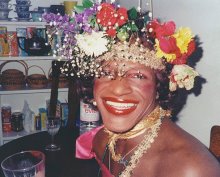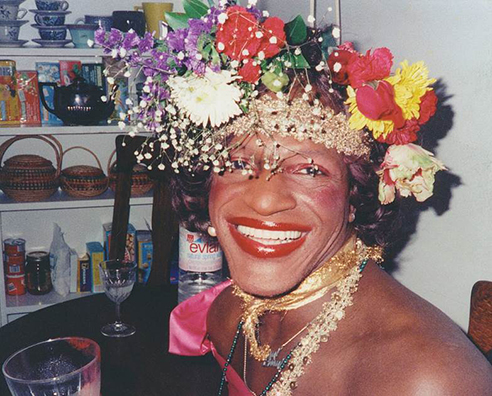
Grace Gaffey and Mia Dowie (Lower Sixth)
This month we celebrate LGBTQ+ history and the international movement for gay rights. As the African and Caribbean Society (ACS), we want to share the inspirational story of Marsha P. Johnson.
Marsha P. Johnson was an African American gay liberation activist and drag queen, who also co-founded the Street Transvestite Action Revolutionaries (STAR). She was an icon in New York City’s gay and art scene from the 1960s up until, and beyond, her death in 1992. She has been called by many ‘the Rosa Parks of the LGBTQ+ movement’.
One of Marsha’s most notable contributions to the LGBTQ+ movement is her involvement in the Stonewall uprising of 1969. Stonewall Inn is a gay club located in Greenwich Village in New York City. On the 28th of June 1969, police raided the club and removed everyone from the bar, due to the homophobic laws and views carried in that era. This sparked six days of protests and violent clashes with the police where Johnson was a prominent figure during the uprising. These demonstrations catalysed the gay rights movement around the world.
Marsha continued to fight for gay rights all of her life. However, Marsha struggled with mental health issues and unfortunately died in 1992. Police initially ruled the death as a suicide but Johnson’s friends and members of the community disputed that she was suicidal. In December 2002, Marsha’s cause of death was reclassified to ‘undetermined’ and, in 2017, Netflix released a documentary, The Death and Life of Marsha P Johnson, which highlighted an attempt to get Marsha’s case reopened.
In 2018, 61% of Black LGBTQ+ members reported having experienced racism. The following year, the Marsha P. Johnson Institute was created to elevate and support the black trans community. An annual event in London, UK Black Pride, recently partnered with Stonewall, Europe’s largest LGBTQ+ rights charity. These are only a few examples of the ongoing struggles against the marginalisation of black LGBTQ+ individuals.
The African and Caribbean Society aim is to empower and ensure a safe space for all students, regardless of their sexuality. As Marsha P. Johnson once said, “How many years has it taken people to realise that we are all brothers and sisters and human beings in the human race?"









.png&command_2=resize&height_2=85)











